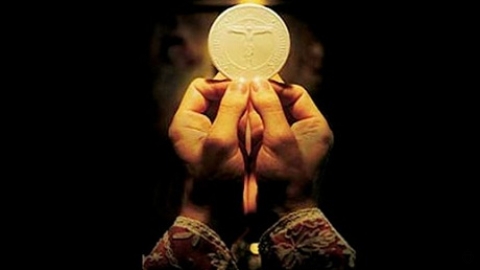Bishop Tissier de Mallerais on Archbishop Lefebvre's Vocation

“A vocation is not the result of a miraculous or extraordinary call, but rather the blossoming of a Christian soul that is attached to its Creator and Savior Jesus Christ by an exclusive love and shares His thirst to save souls.”
Marcel Lefebvre as a child did not eat his fill: the black bread was sticky on the inside and disgusting; the American chickens were rotten when they arrived. Fortunately, there was the soup kitchen. Jeanne, his older sister came home: “Here is the milk can, I filled it at the soup kitchen, but there isn’t enough; there are so many people waiting in line…”
“Time for prayers,” said Madame Lefebvre. “We will pray for Uncle Louis who is in a concentration camp in Pomerania, and for Papa in Holland.” And with their mother, the five children recited the Rosary with their arms outstretched in the form of a cross.
The next morning, Marcel was on his feet at 5:45 to go serve Mass for his favorite priest in a private home, for the school was occupied by the German army. He went out into the street and over on the corner of the rue de l’Abattoir, he saw two soldiers standing there in their grey-green uniforms; they seemed to be waiting for him. Marcel turned and ran back home. Fr. Desmarcheliers came to the house at noon: “Why didn’t you come this morning to serve Mass?” “There were soldiers in the street!"
What Is the Priestly Vocation?
When Christiane was asked in 1986 as a very old Carmelite behind the grille in the parlor of Quievram, in Belgium, “When do you think your brother Marcel received his vocation?” “Well, one receives the priestly vocation on the day of one’s subdiaconate! At least according to the doctrine received and confirmed by St. Pius X.” “But what?” “Marcel always had it, for as long as I have known him! He always wanted to give of himself for others, in the family, at school, with his poor. He had a very balanced temperament: calm, thoughtful, full of ideas, resourceful, an organizer, a doer. Everything he needed!” “And that makes for, shall we say, an apostolic priestly vocation?”
‘A vocation is not the result of a miraculous or extraordinary call, but rather the blossoming of a Christian soul that is attached to its Creator and Savior Jesus Christ by an exclusive love and shares His thirst to save souls.’”
“I’m surprised; what about the call of the Church?
Conclusion
Marcel Lefebvre’s vocation enables us clearly to distinguish the main factors (favorable causes) of priestly vocations among the youth:
- A truly Catholic family, prayerful and mortified (no luxury, no television, etc), kindles a spirit of sacrifice and a sense of the common good.
- Education by the father of the family to the love of God and of one’s homeland, to the combat for these two ideals, to the knowledge of counter-revolutionary heroes.
- Apostolic youth movements, that offer models of young apostles to imitate and provide young people with apostolic activities.
- The example of priests, exemplary in their piety, their availability to hear confessions, their presence among the students, their ability to understand young people, their priestly ideal: “the priest is another Christ.”
- Retreats preached in schools or spent in silence in some monastery for first communions, confirmations, graduations; retreats in which the vocation is presented, to help young people to orient themselves and chose a state of life.


